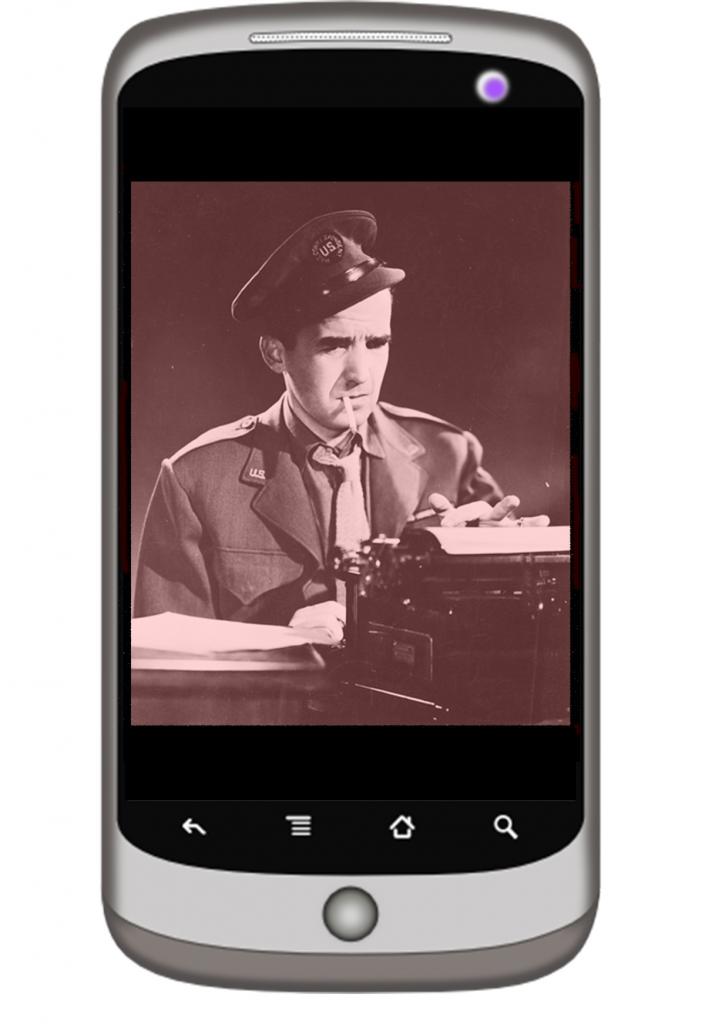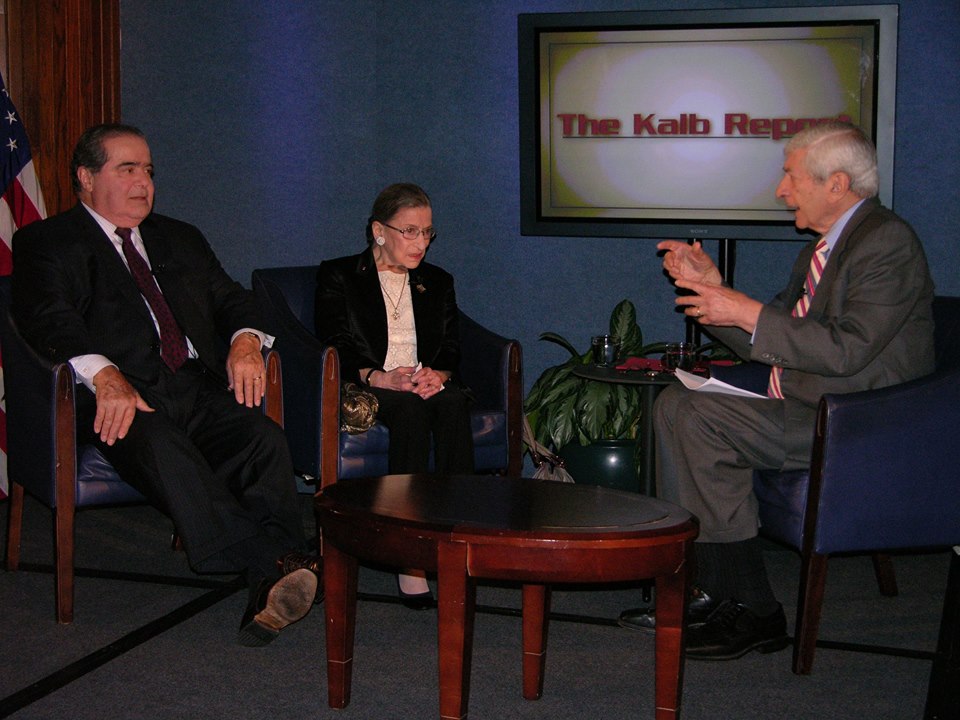Why Murrow matters today: Fearlessly telling the truth
Saturday, April 25, marks the anniversary of the birth of legendary journalist Edward R. Murrow, in 1908. National Press Club 2006 Fourth Estate Award recipient Marvin Kalb, the last correspondent personally hired at CBS News by Murrow in 1957, was asked by National Press Club President Michael Freedman to share his thoughts on Murrow and journalism as our nation and our members of our profession confront the coronavirus crisis.
On this day I reflect on the legacy of Edward R. Murrow, and ask, why Murrow matters?
For so many reasons. Let me start with a personal story. I watched and listened to Murrow for years, idolizing him, but I did not actually meet him until late May, 1957, after I’d returned to Harvard’s PhD program in Russian studies from a 13-month assignment in Moscow, in those days the heart of the Communist challenge to the Western world.
On my return, I wrote a piece on Soviet youth for the New York Times Magazine. Murrow must have read it, and liked it. He called while I was in the library researching some obscure document. The librarian who took the call told me it was “Ed Murrow calling.”

Busy, I foolishly replied, “Ed Murrow is not calling me. Forget it.” Late that afternoon, Murrow again called, and this time, curious, I took the call and the moment I heard his voice, I realized what a fool I’d been. Instantly I apologized. No need to, Murrow said kindly, then explained he wanted to discuss my Times piece and could I be in his New York office at 9:30 the next morning.
“Yes, Sir,” was my immediate response.
On my arrival, Kaye Campbell, his assistant, warned me Murrow had only a half-hour. He was “very busy.” Our meeting lasted three hours, abruptly stopped only when Campbell interrupted, reminding Murrow
he was already late for a lunch. Murrow rose, put his arm on my shoulder, thanked me and asked, “By the way, how would you like to join CBS, professor? We could use someone like you.”
I did, and for the time we overlapped at CBS, until Murrow resigned in 1961, he was always “Sir” to me and I “professor” to him. It was, as Bogart once said, a “beautiful friendship.”
That morning, Murrow asked every conceivable question about Soviet youth. He burned with an intense curiosity. He wanted to know about whether they truly believed in communism, did they have any political beliefs at all, how did they see their political leaders, were they religious, what were their views about family, school and sex, what did they read—he wanted to know about everything, and, unbeknownst to me at the time, I was getting the first answer to my question, why Murrow matters?
Murrow matters, because the best of American journalism, and he surely represented the best, is rooted in knowledge, meaning fact, which could on occasion expand to embrace experience and personal
observation, but Murrow based his most memorable broadcasts on fact, not opinion—what he himself saw from London rooftops during the Nazi blitz, what he himself observed during McCarthy’s assault on democratic institutions in the 1950’s.
An early “Murrow boy,” Richard C. Hottelet, not too long ago, passed on a Murrow rule of thumb: “Don’t
tell me what you think; tell me what you know.”

But Murrow was more than a great journalist who appreciated the fundamental importance of facts in telling a credible story; he was also a pioneer in broadcast news. Others helped, of course, but more than
anyone, he created the industry. He gave life and form to the news broadcasts on radio and television that we today take for granted as our birthright.
When a reporter covers a war in the Middle East, or a political convention in Milwaukee, or the local weather and sports, or even a global pandemic, the model is always Murrow. He is where it all started. Others are honored and rightfully so. Cronkite played his part, as did Huntley, Brinkley, Smith, Rather, Stahl, Brokaw, Jennings, Sawyer, Koppel and others. But each would always feel a special thrill, even at the height of their careers, when compared to Murrow, or when given an honor carrying Murrow’s name.
A related footnote: when I was given the chance in 1987 to name my professorship at Harvard, I wasted not a second to call it the “Edward R. Murrow Professor of Press and Public Policy,” the first time Murrow’s name was attached to a professorship at a major university. Many other such opportunities existed or followed—journalism schools, prizes, honors of many kinds, even a stamp have carried Murrow’s name.
So asking why Murrow matters, especially now at a time of national crisis, is a bit like asking why journalism matters, why a free press matters, why “fake news” matters, why in fact democracy matters.
Murrow was and is an integral part of the grand American story of personal freedom. He understood the crucial role of the journalist standing amidst shifting currents of personal and national challenge, and, no matter the pressure, fearlessly telling the truth to everyone, especially those in power, who sometimes feel they are above it all, immune to legitimate questioning.
Murrow matters, because the journalist stands on the front lines of freedom. Murrow matters, because the journalist is still the one who can be counted on to blow the trumpet of truth for all to hear and then, if they wish, act. Murrow the journalist matters.
